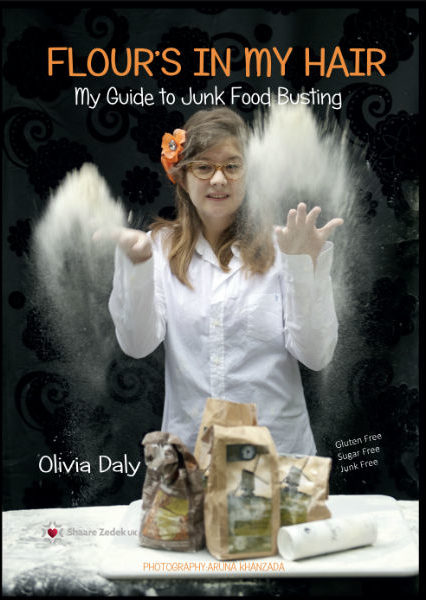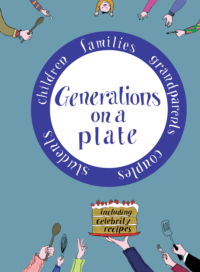Prodigious teenage “chef” and blogger, Olivia Daly, launched her cookery book entitled FLOURS IN MY HAIR – MY GUIDE TO JUNK FOOD BUSTING at the end of last year and though she is just fourteen, her book is by no means a child’s cookbook though it is likely that parents of teenagers and younger children will be drawn to the range of incredibly nutritious and tasty meals, snacks and desserts.
Who thought fried chicken, cheesecake or brownies could be healthy?
Necessary changes in her own diet (high insulin levels) prompted Olivia, already a budding foodie, to create new healthy recipes and adapt those she loves into healthier versions of themselves. Given her sweet tooth, Olivia sought ways to satisfy her cravings without all the deleterious effects of sugar. This involved a great deal of experimentation – removing processed sugars and carbohydrates without sacrificing the wonderful textures and delicious sweetness. Her almost obsessive love of cooking and more particularly, baking, was triggered two years ago after spending an afternoon with her grandma from Johannesburg making pastry.
Olivia also has Asperger syndrome , a result of which she has a tendency to fixate on things with unbounded enthusiasm thus explaining the early morning wake-up calls to prove croissants and an incredibly well stocked kitchen at her parent’s home in north London. As she says in a note to her readers “ It’s a book about eating healthy, and having a laugh. Remember food makes us full of zest and liveliness, especially sugary foods , but we need to stay grounded. We don’t exactly want to be on another planet. Easier said than done for me because I have Aspergers Syndrome and am always in cyberspace!”
Research suggests that more than 90% of children with Autism Spectrum Disorder (including Asperger Syndrome) experience some food related concern. These children typically only eat a narrow variety of foods depending on their texture, type and/or presentation. They have strong preferences for starches, processed snacks and refined carbohydrate-type foods and reject most, if not all, vegetables, fruits and proteins. High consumption of these foods increases attention deficit problems and eventually pre-disposes ASD adults to increased long-term risk for chronic health conditions.
£10.00


